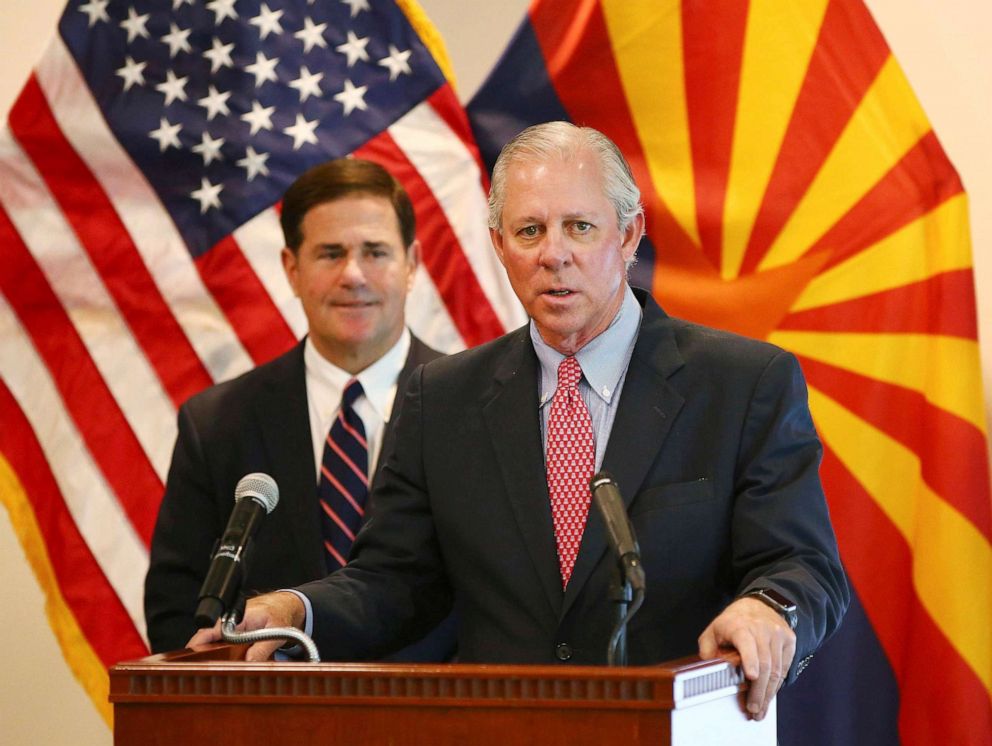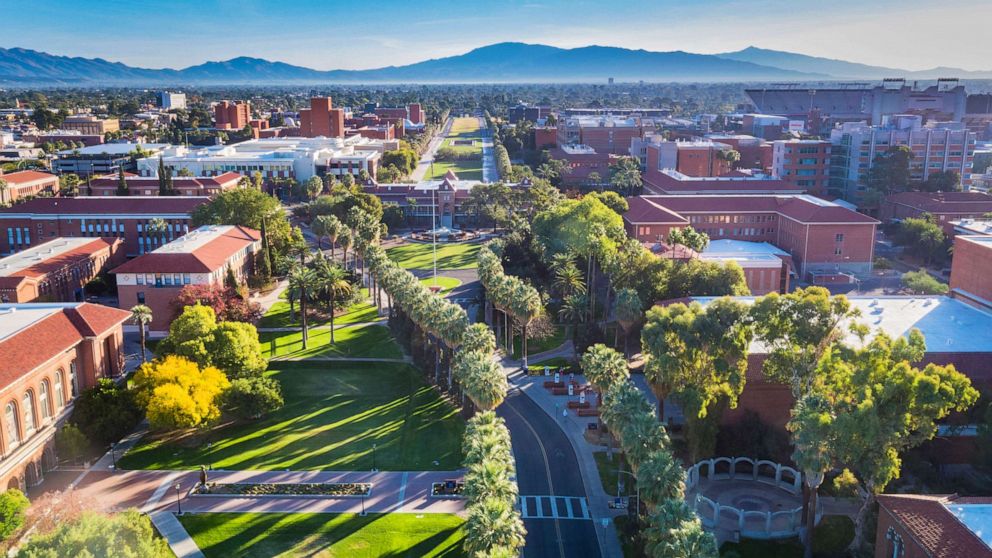University of Arizona details plan for in-person learning in the fall
The president said it was an "endeavour" his teams were committed to.
At the University of Arizona, plans are underway to welcome students, staff and professors back to campus for in-class learning come this fall, even as its president acknowledged that a second wave of COVID-19 cases would almost definitely occur at summer's end and as the nation's top infectious disease expert warned cities and states about the risks reopening too fast.
University President Robert C. Robbins explained to ABC News on Wednesday that the school's reopening plan consisted of testing, tracing and treating.
"We thought that based on us going all-digital format, remote learning and teaching, while we were on spring break, that eventually we would have to answer the question: Well, when do we come back to campus? And in order to come back to campus, we thought it was going to be very important to test as many of our students, faculty and staff, to able to contract trace them and to treat them ... to isolate and to take care, in a treatment way, the whole person," he told ABC News, which got a first look Wednesday at just how the school planned to reopen.
On Tuesday, California State University -- the nation's largest four-year public university system -- announced that it would cancel all in-person classes for the fall and continue remote learning.
And, on Wednesday, Harvard Medical School said that fall classes would begin remotely for entering medical, dental and graduate students.
When asked what the University of Arizona was seeing differently than other colleges and universities when it came to returning to in-person learning, Robbins said that the school's decision was a "matter of risk, reward" and that "we're hearing that people are willing to take that risk."
Robbins, a cardio-thoracic surgeon, has worked for National Institutes of Health, had leadership roles at Stanford and, more recently, led Texas Medical Center, according to the school.
At the heart of the school's reopening project is its research laboratories where scientists have created and are processing their own diagnostic and antibody tests.

Robbins said the free antibody tests would be offered to students, staff and teachers and a dormitory would function like an infirmary for students who show signs of COVID-19. He said that if students and staff are symptomatic, they would be offered a test.
"We just think, based on the demand that we've heard from our students and our faculty, particularly, because we're a research-intensive university, to keep our research operation going and to meet the needs our students want," he said, "we thought it's worth the question of how would we bring people back to campus."
There are 104 days before the university is scheduled to have students, staff and faculty return to campus. The campus has been closed since March 11, when the school was on spring break and it was decided that students and faculty would not return.
Tune into ABC at 1 p.m. ET and ABC News Live at 4 p.m. ET every weekday for special coverage of the novel coronavirus with the full ABC News team, including the latest news, context and analysis.
Robbins told ABC News that he was certain there would be a second wave of COVID-19 but when asked, he said he was not encouraging an unsafe environment by opening the school back up in the fall.
"If we decided we all were just going to stay in our homes like we've been doing for the last nine weeks, there's no question that the spread of this virus would be mitigated," he said. "The question is going to be, 'Can you gradually reenter society?' Because as I said before this is going to go on for at least another year, 18 months, until we get a vaccine."
Robbins said that groups within the university had been working on a detailed plan of test, trace and treat since the school went to remote learning.
Albrecht Classen, a professor of German studies at the university, said everyone was worried, but that he planned to return to classes.
"I will see what happens because we hope we can return to face-to-face teaching because that's the fundamental manner of how to teach," he told ABC News on Wednesday.
He would not say whether it was smart of the university to open in the fall.
"I support what the president says and will do," Classen said. "I hope we can do this. ... I'm worried. But at the same time ... like everyone else, I need my life back. I need to teach again."

With 60,000 students and faculty expected to return to campus, Robbins said that social distancing would be a major issue for the school.
"I believe that we can provide a supportive safe environment that would mitigate the risks to an acceptable level and each individual has to decide whether they buy into that proposition," he said.
Arizona's stay-at-home order will expire May 15.
Robbins did acknowledge, however, that there was one question keeping him awake: "When is this experiment gone so wrong that we have to stop it? And I would say I don't have an answer for that right now, but it is one that concerns me."
And while he said that he "absolutely" worried that he's making a mistake reopening the school to in-person learning, he said his teams were paying "meticulous attention" to all the details to ensure the safety of the students and staff.
"Without question ... it is an endeavor that I don't take lightly, but we take very seriously and we're committed to," he told ABC News.
This report was featured in the Thursday, May 14, 2020, episode of “Start Here,” ABC News’ daily news podcast.
"Start Here" offers a straightforward look at the day's top stories in 20 minutes. Listen for free every weekday on Apple Podcasts, Google Podcasts, Spotify, the ABC News app or wherever you get your podcasts.




